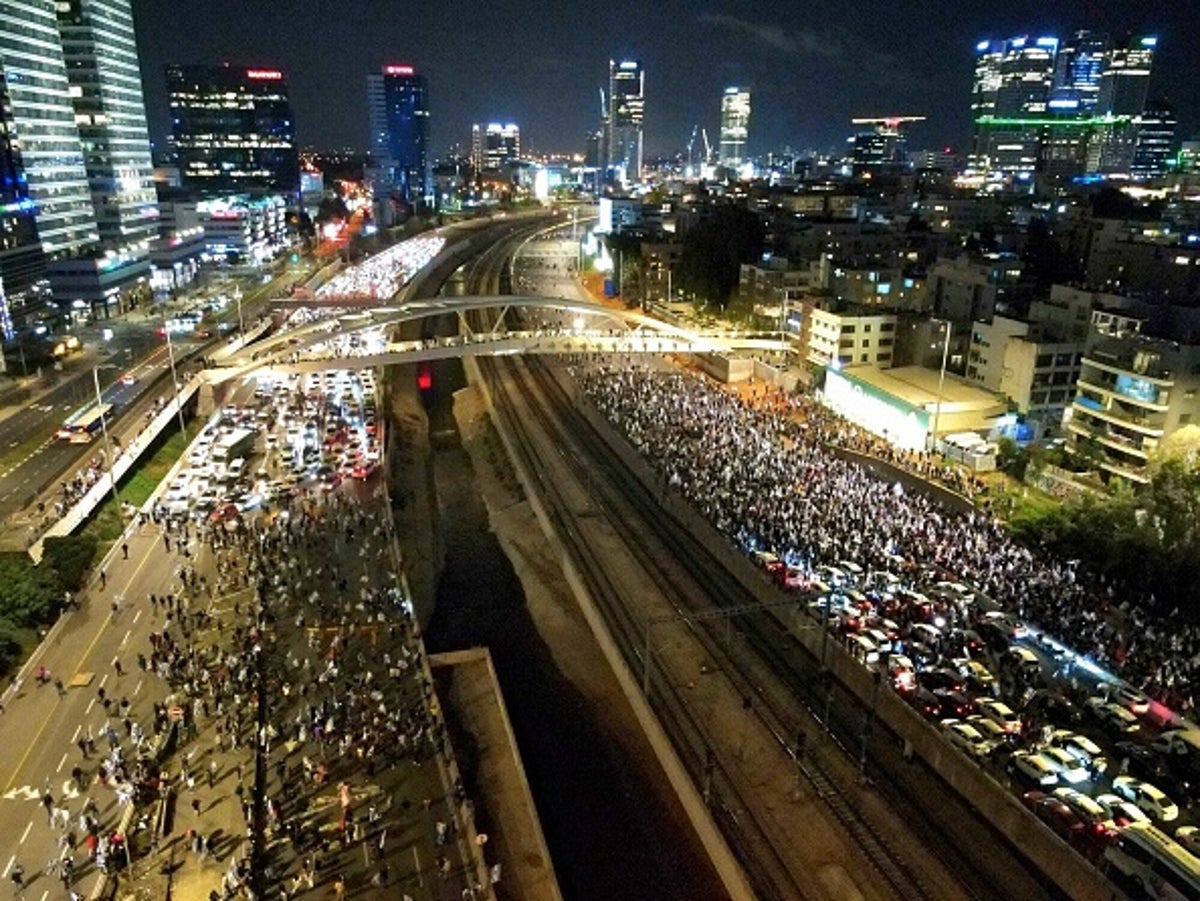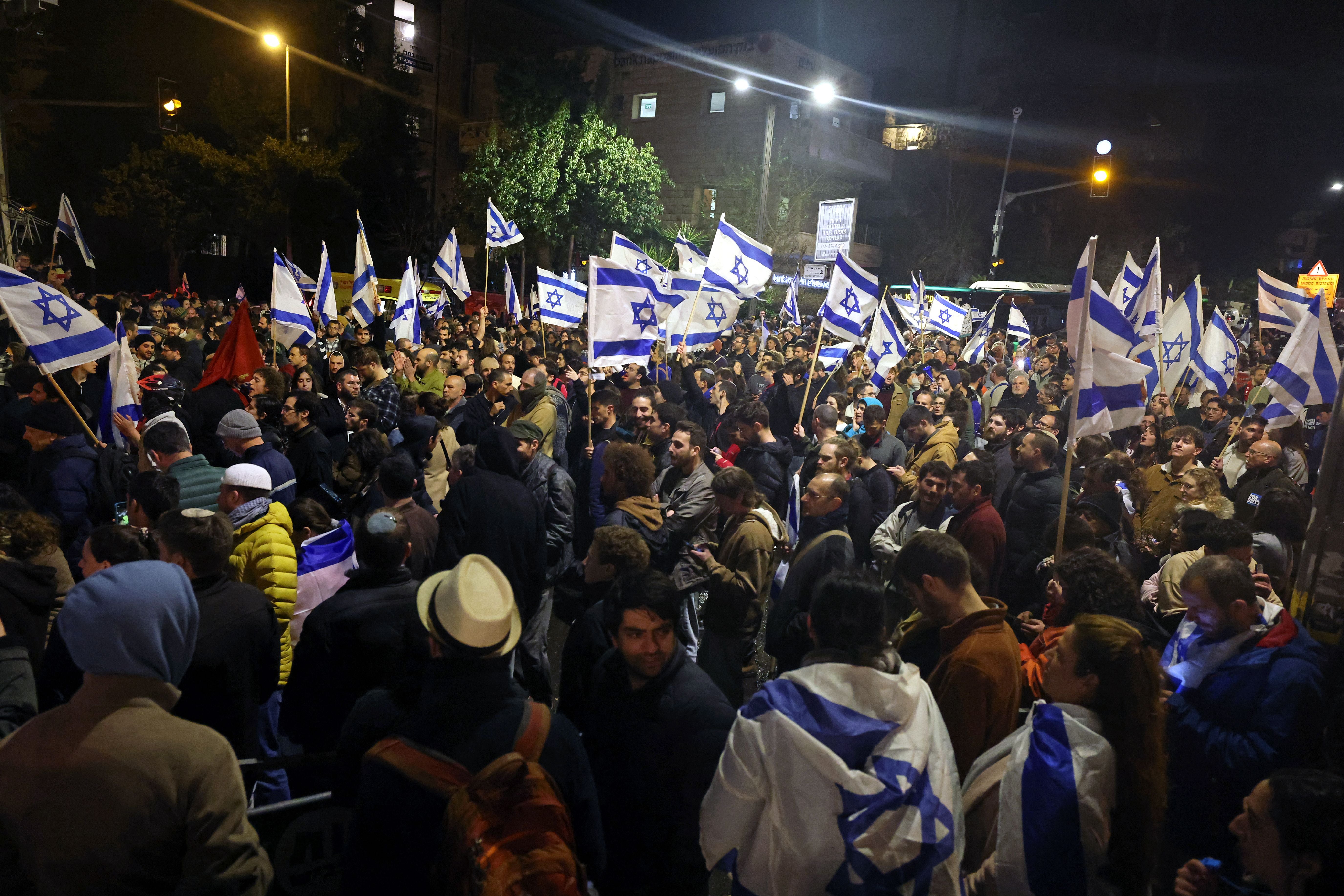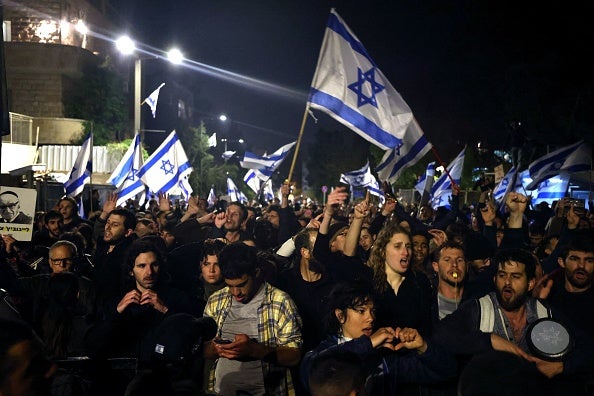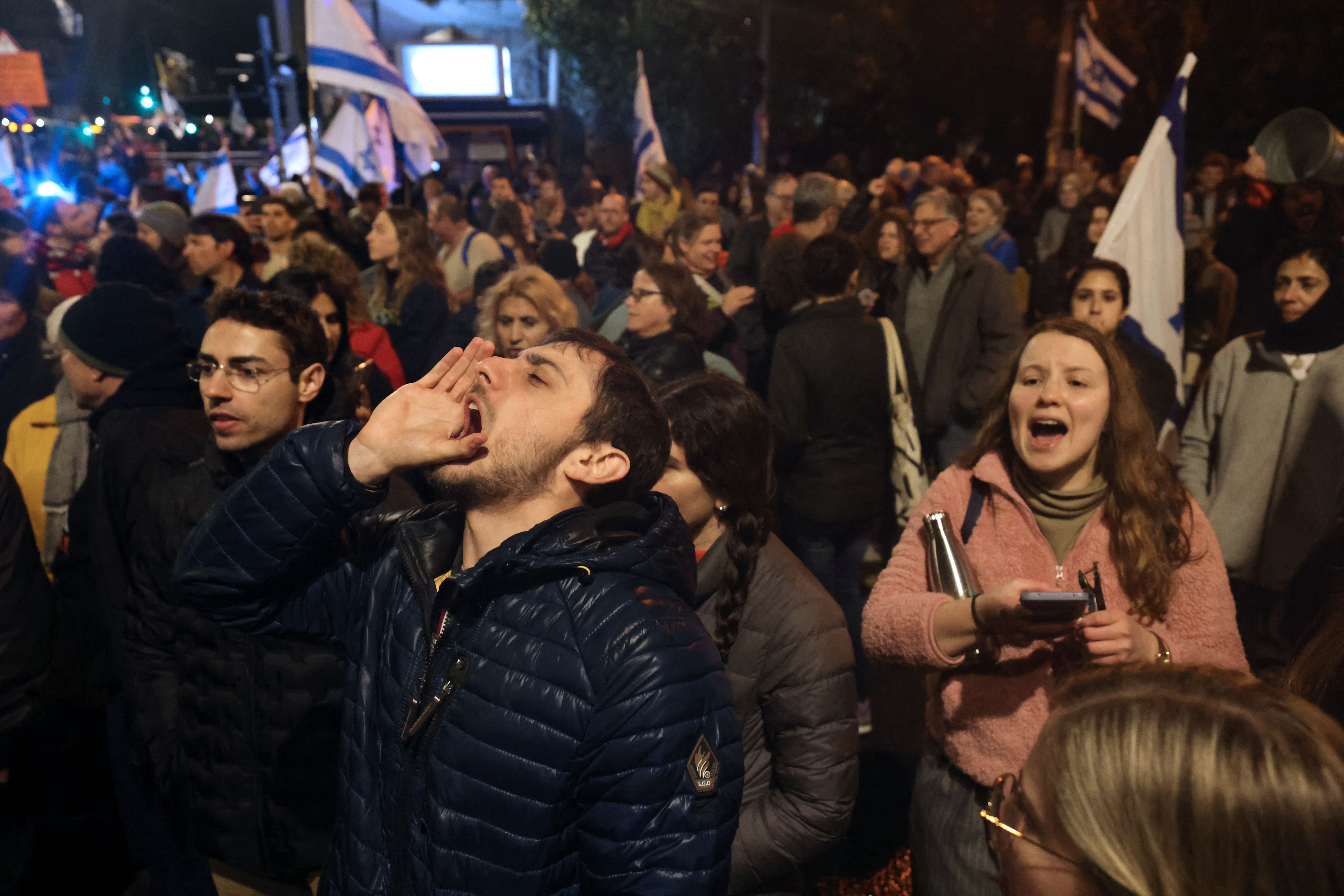
Thousands of people have taken to the streets in Israel after prime minister Benjamin Netanyahu sacked his defence minister and his counsel general in New York resigned.
The country has faced weeks of mass protest over controversial plans to overhaul the judiciary.
Mr Netanyahu fired his defence minister on Sunday after the former army general called for a halt to the divisive reforms, drawing concerns internationally, including from the United States.
Yoav Gallant, a senior member of Mr Netanyahu’s ruling party, called for the changes to be paused until after next month’s Independence Day holidays.
He said he was concerned about Israel’s national security, saying: “The victory of a single side, whether it be in the halls of the Knesset [Israel’s parliament], or on the streets of our cities, will lead to a loss for the state of Israel.”
On Saturday, he said: “I declare loudly and publicly, for the sake of Israel’s security, for the sake of our sons and daughters, the legislative process should be stopped.”

Mr Netanyahu’s office did not provide any further details, but his public diplomacy minister said Mr Gallant was told of his sacking after being summoned to the PM’s office, with Mr Netanyahu expressing he no longer had faith in Mr Gallant as defence minister.

In a statement after he was sacked, Mr Gallant said: “The security of the state of Israel has always been and will always remain the mission of my life.”
Leader of the opposition Yair Lapid described the sacking of Mr Gallant as a new low for the government.
Mr Lapid added: “Netanyahu can fire Gallant, but he can’t fire reality or fire the people of Israel who are fronting up to resist the coalition’s madness.”
Israel’s counsel general in New York Asaf Zamirfol resigned following the dismissal of Yoav Gallant, saying it was time for him “to join the fight for Israel’s future”.
Thousands of people turned out to protest in central Tel Aviv on Sunday night, and pro-democracy protesters also gathered near Mr Netanyahu’s home in Jerusalem.
They waved flags and reportedly chanted: “Democracy! We won’t be Hungary”.
Leaders of the protest accused Mr Netanyahu of acting like a dictator and threatening the security of Israel.

Tensions were already high over the right-wing coalition government’s contentious plan to limit the powers of the judiciary.
It includes enabling parliament to overrule decisions made by the Supreme Court - a move which has been criticised by opponents who say it will undermine the independence of the judiciary, and could be used for political ends.
Mr Netanyahu insists that the measures are being brought in to stop the courts overreaching their powers, and that the legislation was voted for by the public in the last election.
The US issued a statement saying it “continue[s] to strongly urge Israeli leaders to find a compromise as soon as possible”.
“We believe that is the best path forward for Israel and all of its citizens,” White House National Security Council spokeswoman Adrienne Watson said.
“As the president recently discussed with Prime Minister Netanyahu, democratic values have always been, and must remain, a hallmark of the US-Israel relationship,” Ms Watson said.
“Democratic societies are strengthened by checks and balances, and fundamental changes to a democratic system should be pursued with the broadest possible base of popular support.”
As protesters poured into the streets, police used water cannon to push them back from Mr Netanyahu’s residence in Jerusalem, while in Tel Aviv, where hundreds of thousands have taken to the streets since the beginning of the year, protesters lit several bonfires on a main highway.
The protests dwindled as the night went on, and eventually police forcefully removed a smaller crowd that had refused to leave.
Inon Aizik, 27, said he came to demonstrate outside Mr Netanyahu’s private residence in central Jerusalem because “bad things are happening in this country.” He called the judicial overhaul “a quick legislative blitz.”
It was not immediately clear whether the protests would affect the government’s tactics. At least three Likud ministers said publicly that it was time to reevaluate their strategy and they would support halting the legislation if Mr Netanyahu decided to do so. The head of the parliamentary committee deciding on the legislation said discussions would continue on Monday.
Former prime minister Naftali Bennett warned that Israel was “in danger of falling apart” as protests swept the country.
Speaking to Israeli media he said: “It doesn’t matter who is right...the reform is simply not relevant. What is relevant is preserving our country as a unified, functional country.” He urged protesters to demonstrate “without bloodshed”.
A group of universities also announced a general strike starting from Monday morning, in response to the government’s judicial overhaul.
The crisis comes as Israel‘s security establishment has been bracing for potential violence in the coming weeks as the Muslim holy month of Ramadan overlaps with the Jewish Passover and Christian Easter celebrations.
Over the past year, Israeli forces have been conducting nearly daily raids in the occupied West Bank, killing more than 250 Palestinian fighters and civilians, while more than 40 Israelis and foreigners have been killed by Palestinian attackers.
Additional reporting by agencies







